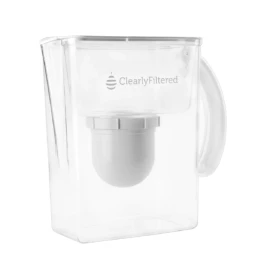We combed through multiple medical journals looking for the latest research on the Integrative approach to kidney health. We know your time is valuable, so we curated and summarized these studies for you. Welcome to the InKidney September Research and News.
A pro-inflammatory diet is linked to faster progression of CKD
In a study published ahead of print, investigators analyzed the NHANES data to assess the link between a “pro-inflammatory diet” and the progression of CKD.
1,084 adults with CKD were included. 109 (10%) developed kidney failure requiring renal replacement therapy (dialysis or transplant).
An adapted Dietary Inflammatory Index (ADII) score was calculated to determine the inflammatory score based on dietary recalls.
In addition, an inflammatory score was used. This was based on four markers: CRP, serum albumin, white blood cell count, and mean platelet volume.
Both dietary inflammatory index and inflammatory score were associated with increased progression to kidney failure.
The authors emphasized that dietary saturated fatty acids, trans fats, or sugar are pro-inflammatory and associated with faster progression of CKD. While a diet rich in fiber or n-3 polyunsaturated fatty acids (n-3 PUFAs) are anti-inflammatory effect and is associated with slower kidney function decline.
Join us to end the kidney disease epidemic and receive the FREE Report “5 Pitfalls to Avoid When Caring for Kidney Patients”
Synbiotic treatment in kidney disease decrease inflammation
In a small study published ahead of print in the Journal of Renal Nutrition, researchers studied 34 adults with CKD.
Patients were randomized to either receive synbiotic treatment (Lactobacillus acidophilus, Lactobacillus casei, and Bifidobacterium lactis, 32 billion colony-forming units per day plus 3.2 g of inulin) or a placebo for 12 weeks.
Synbiotic treatment significantly modified the gut microbiome. It reduced serum levels of the gut-derived uremic toxin indoxyl sulfate. It also decreased levels of high-sensitive C-reactive protein. There was a small improvement in the estimated glomerular filtration rate.
These studies are promising. However, a personalized approach based on a comprehensive gut restoration protocol may be more effective in decreasing inflammation.
Gender plays a role in age-related loss of kidney function
In a study published last month in JASN, the authors studied 1837 persons (53% women, aged 50–62 years) without self-reported diabetes, CKD, or cardiovascular disease over a period of 13 years in northern Europe.
GFR was measured by plasma iohexol clearance. Women had a lower GFR than men at baseline. However, the rate of decline in GFR was faster in men than in women.
The relationship between GFR and age was linear in women but was curvilinear in men with a faster decline at an older age. This decline was independent of health status.
This study indicates the potential role of sex hormones in the decline of kidney function and kidney disease.
Join here to receive FREE monthly updates on the latest research in Integrative Nephrology and tips on managing kidney disease straight to your inbox.
We would love to hear your feedback. Let us know what you think of these educational materials and if you like us to focus on specific topics. Please email us at info@inkidney.com.



